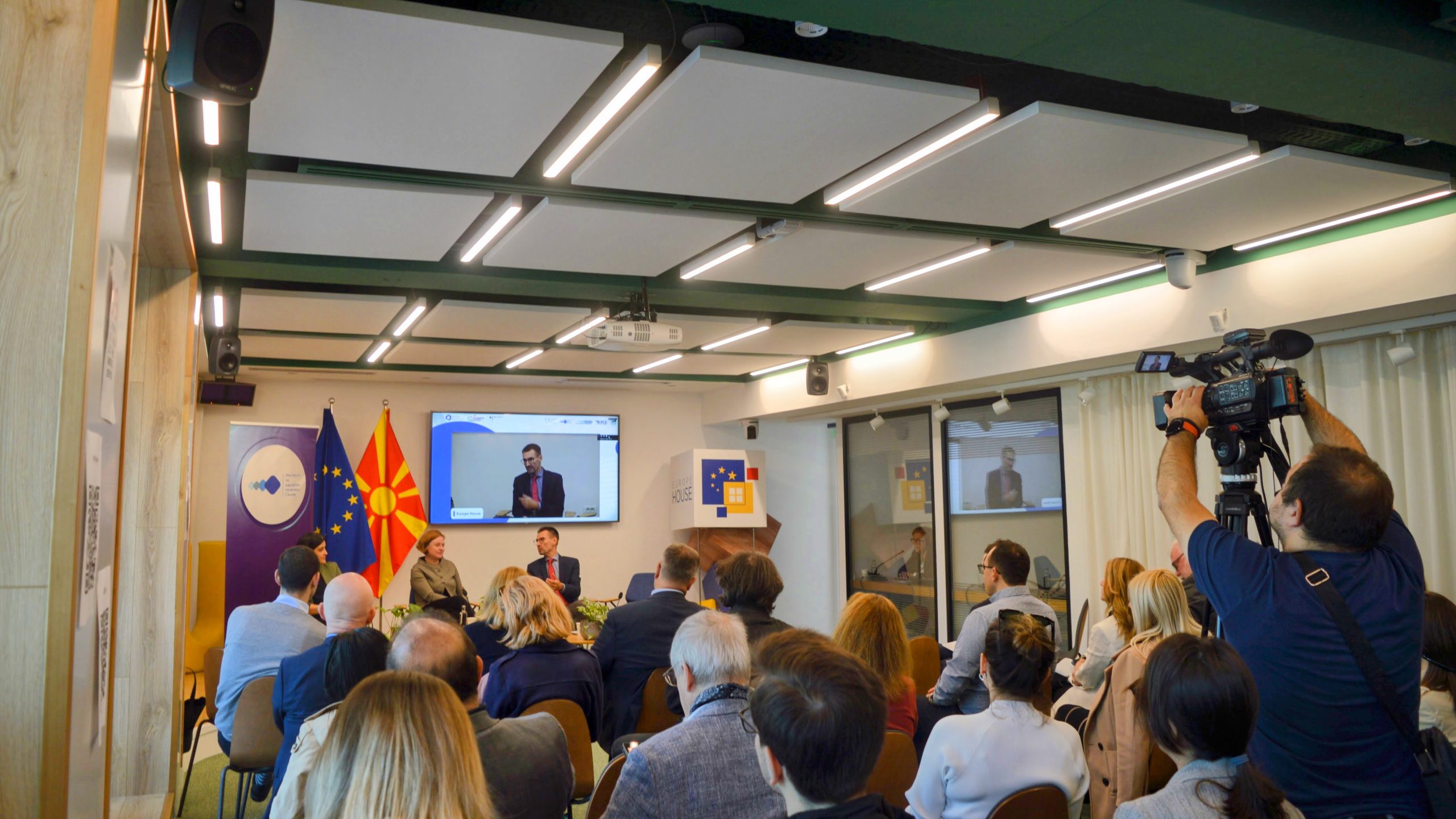Today’s discussions at Advancing Regional Cooperation: The Path Towards Common Regional Market (CRM) and EU Integration in the Western Balkans highlighted the urgent need for stronger regional cooperation and reform alignment to ensure the Western Balkans’ successful integration into the European Union. The event, hosted by the European Policy Institute (EPI) – is part of the Common Regional Market Week in the Western Balkans – an initiative spearheaded by the Cooperation and Development Institute, in collaboration with civil society organizations across the Western Balkans, and supported by the German Federal Office.
Against the backdrop of the 10th Berlin Process Summit and growing economic challenges, the event underscored the critical role of civil society and policymakers in shaping reforms that will secure long-term stability and growth for the region.
The discussions centred on the future of the Common Regional Market (CRM) Action Plan 2025-2028 and the EU Growth Plan for the Western Balkans, drawing on insights from civil society, government representatives, and international partners.
The event was opened with a key speech by the German Ambassador, H.E. Petra Drexler who emphasised the importance of the Berlin process in advancing the regional cooperation and inclusion of think-tank and civil society organizations in monitoring the process from the very beginning in order to ensure focus on the actual implementation of the goals.
Ben Nupnau, the Deputy Head of EU Delegation to North Macedonia who reiterated the EU’s commitment to support the reform agendas of the Western Balkans and emphasized that the EU is strongly committed to advancing regional integration efforts on the way to full membership, which will open up potential for economic growth. He further emphasized that such a common regional market could add 10% to the production of the Western world.
Olivera Ceni Bardiqi, Trade Facilitation Expert at CEFTA gave a detailed overview of the Action Plan for CRM 2 and outlined the next steps after the Berlin Process Summit. She pointed out that with CRM1 there was an increase in trade in goods and services by about 19% and that regional trade in CEFTA has doubled in the last five years.

“With the Green Lanes initiative, we managed to save 20 years of queuing in 2023 Furthermore, in 2023, intra-CEFTA exports of goods reached 8.5 billion, which represents an increase of 123% compared to 2013, when it stood at 3.8 billion” said Ceni-Bardiqi.
One of the key recommendations from the discussion of the EU Growth Plan for the Western Balkans is the need for reforms in green and digital transformation, as well as human capital development to close skill gaps across the region. To ensure the successful implementation of these reforms, it is crucial that administrative capacities are strengthened and that reform efforts at the national level are aligned with broader regional objectives. Coordination of reforms across the Western Balkans is essential for avoiding discrepancies and enhancing the overall integration process with the EU.
In terms of the Common Regional Market Action Plan 2025-2028, civil society highlighted the importance of addressing gaps in information and implementation, ensuring citizens across the Western Balkans are aware of their rights under the CRM and can access relevant support. It was also recommended that the CRM framework be expanded to include a stronger social dimension and measures to mitigate negative externalities, such as rural-urban inequalities and the displacement of traditional jobs. Additionally, the establishment of a permanent Civil Society Consultation and Engagement Mechanism was proposed to enhance transparency and allow for continuous CSO input in CRM policy-making.

The event concluded with a discussion on the next steps for regional cooperation and the role of civil society in ensuring the effective implementation of the CRM2 Action Plan and EU Growth Plan reforms.
Supported by the German Federal Foreign Office, civil society organizations in the Western Balkans have been actively involved in promoting an inclusive policymaking process, ensuring greater citizen engagement and societal backing for regional cooperation through under the initiative “Channelling SEE6 Civil Society contribution to the Common Regional Market and Berlin Process”.
The CRM Week 2024 will continue in other Western Balkans capitals, respectively in Belgrade on 22 October, in Pristina on 23 October and finalizing in Sarajevo on October 24th.






